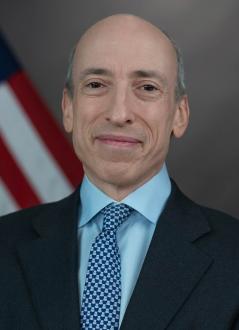The Securities and Exchange Commission (SEC) adopted new rules and amendments to enhance the regulation of private fund advisers and update the existing compliance rule.

The SEC said that these changes are designed to increase transparency, competition, and efficiency in the private funds market – and protect private fund investors.
“Private funds and their advisers play an important role in nearly every sector of the capital markets,” SEC Chair Gary Gensler said. “By enhancing advisers’ transparency and integrity, we will help promote greater competition and thereby efficiency. Consistent with our mission and Congressional mandate, we advance today’s rules on behalf of all investors — big or small, institutional or retail, sophisticated or not.”
The final rules will require private fund advisers registered with the SEC to provide investors with quarterly statements that detail information on fund fees, expenses, and performance. Further, they will require a private fund adviser to distribute to investors an annual financial statement audit of each private fund it advises, along with a “fairness opinion or valuation opinion.”
In addition, the final rules will prohibit all private fund advisers from providing investors with preferential treatment regarding redemptions and information if such treatment would have a negative effect on other investors. Also, the new rules will restrict certain other private fund adviser activities that are deemed contrary to the public interest and the protection of investors. Advisers will not be prohibited from engaging in certain restricted activities, as long as they provide disclosure and, in some cases, obtain investor consent. However, the final rules will not permit an adviser to charge or allocate to the private fund certain investigation costs where there is a sanction for a violation of the Investment Advisers Act of 1940 or its rules.
Additionally, the commission adopted legacy status provisions applicable to certain of the restricted activities and preferential treatment provisions. Such legacy status will apply to those governing agreements entered into in writing prior to the compliance date. This is to avoid requiring advisers and investors to renegotiate governing agreements for existing funds.
U.S. Rep. Patrick McHenry (R-NC), the chairman of the House Financial Services Committee, is calling on the SEC to rescind these rules.
“Once again, Chair Gensler’s SEC is exceeding its statutory authority to impose onerous and costly mandates—this time on private funds,” McHenry said. “By applying a framework designed for retail funds used by everyday investors to private funds, this rule fails to acknowledge the differences between these markets. Instead of pursuing this one-size-fits-all approach, the SEC should be working to strengthen our public markets and create new opportunities for all investors to save and build wealth through our private markets—just like Republicans have done with our capital formation agenda. I urge the SEC to rescind this ill-advised rule, which is a thinly veiled attempt to dictate private fund management.”